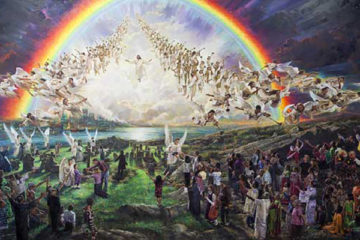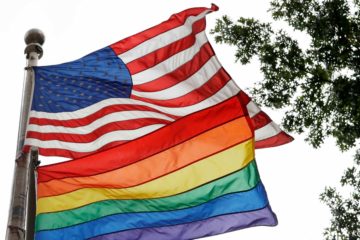With the passing of time, fellowship in large congregations will be a thing of the past. Yet, we are counseled to keep meeting with our fellow believers for encouraging and exhorting one another, as the day approaches.“Not forsaking the assembling of ourselves together, as the manner of some is but exhorting one another: and so much the more, as ye see the day approaching.”
Since its inception in 2017, World Church Affirmation Sabbath, or WCAS for short, has hoped that there would be more locations throughout the world where the lay members may gather periodically for sharing of their experiences and exchange of information and ideas.
We meet three times a year. Typically, we would pick a theme pertinent to the time we are living in, and three speakers are assigned to speak on three topics under that theme. The WCAS Planning Committee makes up a prospectus with a rough guideline on what the speakers may wish to speak on these three topics. At the end of presentations, we have the audience participate in the Question and Answer session, where ideas and opinions are freely exchanged on the spiritual as well as on the church administrative issues. In the days prior to Covid pandemic, we also had a light fellowship supper after the meeting, where members from neighboring churches had an opportunity to fellowship with one another and also to meet new friends. Knowing people in your area greatly facilitates the process of selecting delegates to such things as constituency meetings.
Those of us who have participated in WCAS gatherings have learned that there is a tremendous blessing in this kind of gathering among the laity.
There have been some obstacles to this goal, such as banning of WCAS in some churches and a couple of conferences (currently only one conference), with some unwarranted suspicion against the gathering of lay members. But, perhaps the greatest obstacle is the inertia among the lay members for organizing such gatherings.
It is true that it takes some momentum, time, and organizational skills to host an event in a church setting. And as stated above, there may be some resistance at some places for allowing such gatherings.
More recently, WCAS group has been encouraging the laity to consider hosting small group gatherings, even at an individuals’ homes, where three individuals can speak on three topics, and the group can have a discussion afterwards. This kind of gathering can be organized with minimal efforts and time. And if enough momentum builds up in your location, converting it to an in-church event should be relatively easy, should you decide to do so.
There are reasons to consider small group gatherings preferable to large in-church gatherings. These include:
- This is the way the “church” will operate in the near future
- It provides opportunity for more lay members to get involved, as it is always those who are involved, such as presenters, that are most blessed
- It serves as a training to verify all truths by the word of God, not accepting the word of some theologians or preachers
- It provides opportunity to share personal testimonies
- We get to know concerns and interests of fellow members as we get more acquainted in small groups
- To listen to our fellow believer present can be a strong stimulus for our study
- We can obtain information regarding the administrative issues in the church
We encourage each one of you, readers, to give consideration to organize a small group at your location. Out of the pew into the vineyard of the Master!



0 Comments